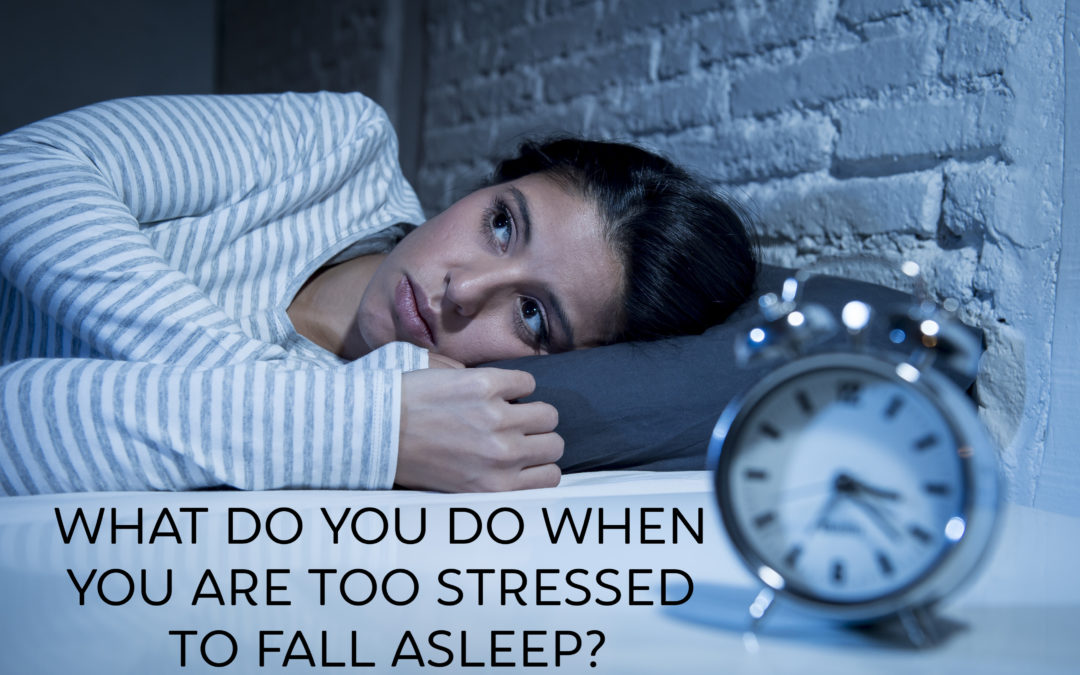By: Lauri Leadley, CCSH, RPSGT- Clinical Sleep Educator|Sleep Coach

Lauri Leadley, CCSH, RPSGT
A good night’s sleep after a long day at work is one of the best feelings in the world!
However, if you find you are tossing and turning even when every bone and muscle in your body is screaming for sleep, it could be because your mind is just not ready to turn off.
As a sleep coach, I often come across patients who tell me they struggle with settling down and falling asleep even after a hard day’s work. Many of these patients don’t have any kind of serious or chronic sleeping disorder to begin with, yet they struggle to get a good night’s sleep. What gives?
One of the most common culprits? Stress. It could be work pressure or really any stress in a patient’s life.
The spill-over effect of this stress leaves them wide-eyed and unable to get a good night’s rest. In some patients, this inability to fall asleep, if left unchecked, can lead to long-term insomnia and other health conditions.
Is stress keeping me up or is it something else? How do I know the exact cause?
To understand if stress is keeping you from sleeping well or if the triggers are different, it is important to first identify what is causing the problem. If you find that you sleep well when you are not under stress and that removing the factors which stress you out eases the problem, then you know it is stress-related.
However, if you find that you are unable to sleep even when you are not under any kind of duress and that the sleep problem is consistent, then the cause could be elsewhere.
It is also important to understand that the inability to fall asleep could also be caused by a mental health condition like anxiety or depression.
For these reasons, a professional assessment is the best way forward. A sleep coach will examine you to correctly identify the triggers and then come up with a treatment plan to address your specific sleep problem.
How can I start sleeping better?
If stress is the reason behind your sleeping problem, there are several steps you can take to address the issue. Consider the following.
Unplug and Disconnect
Yes technology, in particular, “smart” and “connected” technology, makes our lives easy. However, it can also disrupt the body’s natural sleep rhythm by acting as a distraction. So, unplug and disconnect from your phone and laptop and any other device which can keep you up.
Unwind Before You Go to Bed
Set aside some time before getting to bed and indulge in activities which help you to de-stress.
- Avoid eating or drinking stimulants like sweets and caffeine.
- De-stress by praying or meditating, engaging in some deep-breathing exercises, taking a warm bath, listening to calming music – anything which helps you relax.
- If muscle tension keeps you from falling asleep, then certain yoga positions can help relieve muscle tension.
Make Your Sleeping Area Comfortable
A good mattress and head support (pillow) can make a big difference in improving the comfort level, thereby helping your body relax. Reduce any distractions by way of noise and lights, including your television.
Schedule Your Bedtime
One of the best ways of improving your sleep quality is to establish a fixed bedtime routine. Pick a time to go to bed and try to stick to that time. The same goes for waking up as well. Changes in sleep time can impact the natural sleep rhythm of the body.
Stress is the Culprit
Stress is unavoidable given the kind of hectic lifestyles most of us lead. It can affect you physically and mentally. One of the side-effects of stress is the inability to sleep or enjoy good quality sleep.
The terrific news is that a few lifestyle changes can help in addressing stress-related sleeping problems. If, however, you find that even with lifestyle changes, your sleeping problem persists, then consult with a professional sleep coach ASAP.
Valley Sleep Center – We Help You Sleep Better!
Is stress keeping you from sleeping well? If none of the above suggestions have yielded the desired results, then it is best to consult with a professional sleep coach. We at Valley Sleep Center can help you. For a consultation with sleep coach Lauri Leadley, please email us at sleep@valleysleepcenter.com.


